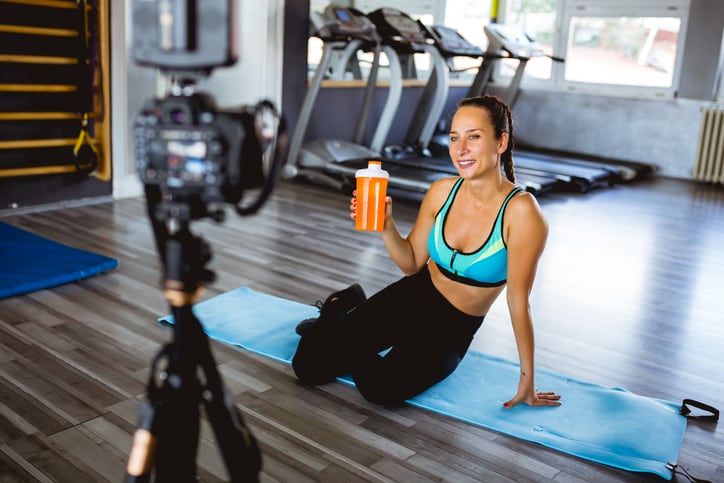Azmina Govindji, media spokesperson for the British Dietetic Association, says celeb-endorsements of so-called 'health' products and diets are prompting youngsters to experiment with 'trendy eating practices' which may explain the nationwide rise in diet deficiencies.
"The recent National Diet and Nutrition Survey (NDNS) suggests that teenage girls are most at risk of low intakes of several important minerals, with 22% of them having intakes lower than the LRNI for calcium, and 27% for iodine.
"This is probably a time when girls are experimenting with trendy eating practices, and are being influenced by what they see and hear from non-experts on social media. Both these nutrients are abundant in milk, so trends, for example to go dairy free, exacerbate this risk of deficiency."
Her comments come in response to a recent BBC report that Prof Stephen Powis, NHS medical director, is calling for a ban on all celeb ads for quick fix weight loss products on social media.
Powis told the BBC: "The risks of quick-fix weight loss outweigh the benefits, and advertising these products without a health warning is damaging.
"Highly influential celebrities are letting down the very people who look up to them, by peddling products which are at best ineffective and at worst harmful."
Like an eye test at the dentist
Responding to Prof Powis' view, Govinji adds: "You wouldn't go to a dentist to have your eyes tested, so why look to a celebrity to advise you on nutrition?
"Consumers are bombarded with fake nutrition news and perhaps the more sensational it is the more attractive it becomes! It's not easy to differentiate between celebrities who truly believe in a health product without having been paid to promote it, and those who do it for financial gain.
"So it's best to ignore the hype, accept such claims simply as entertainment, and look to accredited professionals for your health advice. Misinterpretation and exaggeration of nutrition research, whether intentional or not, is health quackery and can be potentially harmful."
Everyone's an expert
The dietitian and author adds that the issue isn't only with celebrities but generally with the vast amounts of people claiming to be health and diet experts on their social media profiles.
"There needs to be more awareness of the difference between people who may call themselves a nutritionist or diet expert, which is currently unregulated, and a dietitian which is a protected title.
"Many people claim to be experts in nutrition yet have very limited knowledge and offer no protection to the public. There needs to be a simple way to check background and qualifications. Dietitians are the only nutrition professionals to be regulated by law, and are governed by an ethical code."
Healthy opportunity
But Govindji adds that celeb endorsements could have their place in helping health companies to reach a wider audience and encourage healthier lifestyles if the celebrities work closely with health experts.
"Consumers are increasingly taking their health into their own hands, and self-efficacy is a good thing. But it needs to be supported by credible accurate knowledge and support from qualified professionals such as dietitians and degree-qualified nutritionists.
"Brands can harness the power of celebrities to help people make healthier choices, after all they are role models with influence.
"But this should be strictly within the EFSA regulations for making a health claim, and should be backed up with evidence for making that claim. And ideally a qualified and regulated dietitian or nutritionist should be supporting such communication.
"Celebs could provide valuable guidance if they sought collaboration with an expert before promoting health products."

